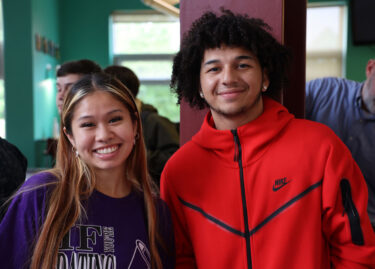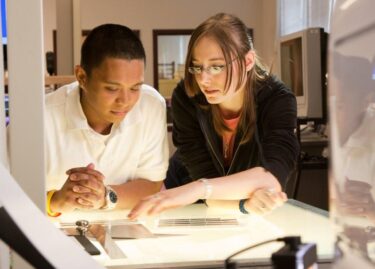Earning a nursing degree requires many hours of hands-on experience. For 260 students across the seven campuses of the Community College System of New Hampshire (CCSNH), completing their final semester in the hands-off environment of their last two months of college created unexpected challenges. Some creativity and a lot of support from nursing faculty helped these students gain their clinical hours so they could complete studies and graduate.
Clinical experience is typically gained in labs at the colleges or at a healthcare facility. Both of these options disappeared for most as these facilities either had to close or limit access due to COVID-19. As a result, remote experiences that mirrored clinical experiences and additional monitoring and mentoring processes needed to be developed and quickly put in place.
“Using evidence-based educational resources students currently had access to, the faculty worked to recreate clinical days. This included having a pre-conference with students, patient care assignments, documentation of all interventions and procedures, post-conference and reflection. All of these components are part of the live clinical experience. We were able to have nursing students complete their clinical experience by the end of the semester and felt confident they met the expected outcomes although the clinical experience changed,” said Denise Ruby, nursing director at River Valley Community College.
To accomplish this, nursing faculty defined the clinical experience in terms of clinical objectives and clinical components. This allowed evaluation of this year’s students on the same outcomes as prior classes. The benefits of the virtual clinical experience were that students all had the same patient care experience, it was objectively measured on safe, effective patient care and students received immediate feedback on their performance and could therefore repeat the scenario with continuous improvement in learning until they reached a proficient score. The disadvantage was in missing the physical interaction with patients.
At River Valley Community College (RVCC), the majority of the nursing students work as Licensed Nursing Assistants (LNAs) and continued to do so through the spring. This provided them with an opportunity to have physical interactions with patients, although it differed from how a student would have approached clinical care. The work experiences allowed for on-site learning through interactions with patients, nurses and other healthcare team members that helped students make connections between virtual clinical and classroom learning.
“The nursing faculty at RVCC collaborated to create a parallel clinical experience in order to continue student learning and provide new graduate nurses who are greatly needed in our community,” Ruby said. “The change in teaching methods was a challenge to our nursing faculty, but I can honestly say they met it well and learned from the experience. We are all stronger, better educators from it and will continue some of the active teaching strategies utilized during this period,” she added.
As a result of the innovative work of the faculty and resilient learning abilities of the students, 260 CCSNH students earned their associate of science degree in nursing. They are now ready to sit for the National Council Licensure Exam (NCLEX) and take their places as Registered Nurses (RNs) at New Hampshire hospitals and other healthcare facilities across the state. These facilities continue to have demands for skilled workers and this particular group of graduates have demonstrated that they can adapt to new working and learning environments that are critical in healthcare today.



